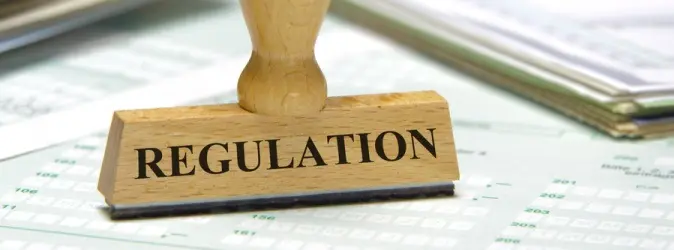
Recently I received a question via email from a fellow Christian. Editing for clarity, he asked: “Do libertarians want to get rid of regulation? It’s an honest question. This is being done by the freedom caucus of the Republican party, which begs the question: is this what libertarians mean when they say freedom?”
The link is to a Huffington Post article describing the future plans of the Trump administration to rollback a variety of regulations, from the ACA to environmental “safeguards”. Here is how I responded (with some extra elaboration for this post)…
I can’t say I understand everything about Donald Trump’s plans (after all, Trump probably doesn’t understand everything about Trump’s future plans), but the libertarian position is that deregulation is a good thing. Libertarians don’t support government telling people how to run their lives. Regulations, like it or not, tell people and business how to do their jobs.
Libertarians think that if government has any function at all, it is to protect the life, liberty, and property rights of individuals. Regulations tend to infringe on property rights, although some are regulations are worse than others, for sure, and our priority is to affect the most egregious as best we can while maintaining the radical stance of abolition of all of them.
You might say in response, “What about those things that are regulated that can cause property damage?” Sure, that can be a problem. Regulations, however, often have unintended consequences that restrict legitimate market activity as well. What libertarians suggest as a solution is, simply put, to uphold property rights as inviolate. For instance, if a polluter, whether unintentionally or intentionally, damages someone’s land, the landowner has every right to demand restitution for the violation of his property.
This would incentivize anyone who might think to pollute not to commit harm. In fact, this was the way it was done in the past, but regulations actually gives polluters a “free pass” up to a certain point, even if damages DO occur.
“But how would businesses know what to do to prevent harm without the regulations?” Good question, but it misses the important point that standards and best practices develop all the time without government organizing anything. In fact, there is great incentive to standardize and share best practices in industry precisely because it makes everyone’s business better off. Waiting with baited breath for the next regulation to come down from on high and trusting in whatever is proffered has the unintended consequence of businesses often assuming that the edicts will be sufficient for profitability and harm prevention. We know from experience, though, that this is not the case. When responsibility is in the hands of owners, rather than passed on, in part, to the state, problems will inevitably arise.
To learn even more, check out this short article on how regulation is a hidden tax.

Articles posted on LCI represent a broad range of views from authors who identify as both Christian and libertarian. Of course, not everyone will agree with every article, and not every article represents an official position from LCI. Please direct any inquiries regarding the specifics of the article to the author.
Did you read this in a non-English version? We would be grateful for your feedback on our auto-translation software.
), //libertarianchristians.com/wp-content/plugins/smartquizbuilder/includes/images/template6-latest.jpeg))

), https://libertarianchristians.com/wp-content/plugins/smartquizbuilder/includes/images/template6-latest.jpeg))








































), https://libertarianchristians.com/wp-content/plugins/smartquizbuilder/includes/images/template6-latest.jpeg))
), https://libertarianchristians.com/wp-content/plugins/smartquizbuilder/includes/images/template6-latest.jpeg))
), https://libertarianchristians.com/wp-content/plugins/smartquizbuilder/includes/images/template6-latest.jpeg))





*by signing up, you also agree to get weekly updates to our newsletter
Sign up and receive updates any day we publish a new article or podcast episode!